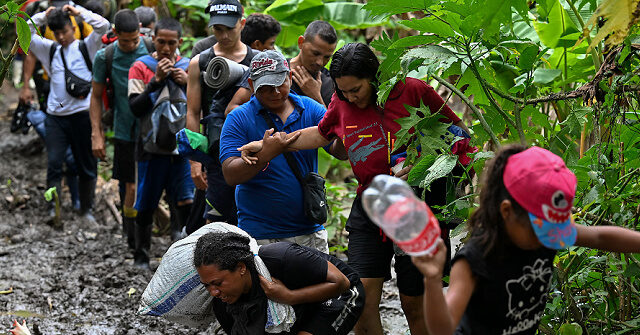Panama’s President José Raúl Mulino recently announced a new policy aimed at deterring illegal migration through the perilous Darién Gap jungle trail. As part of this initiative, migrants caught crossing through the region without proper documentation will face fines ranging from $1,000 to $5,000. The severity of the fine will be determined by the nature of the immigration infraction. Mulino made it clear that those unable to pay the imposed fines would be subject to deportation, highlighting the increasing pressures on Panama as a transit country for migrants seeking entry into the United States. This key announcement was made during a regular press conference where Mulino discussed various national concerns, emphasizing the importance of managing the country’s migration crisis.
Since taking office in July, Mulino has rolled out a series of measures designed to regulate the flow of migrants through the Darién Gap, a rugged and dangerous passage that connects South America with Central America. This jungle route has seen a surge in migration in recent years, as hundreds of thousands risk their lives navigating its treacherous terrain in pursuit of better opportunities in the United States. Official data indicates that the majority of these migrants are Venezuelans fleeing their country’s humanitarian crisis spurred by an authoritarian regime. The number of migrants crossing the Darién Gap soared dramatically in 2023, with Panamanian authorities recording 520,085 crossings, which more than doubles the previous year’s count of 248,284.
The administration has undertaken various measures to address this migration crisis, including erecting barbed wire fences along frequently used paths through the jungle and establishing agreements with the U.S. Department of Homeland Security (DHS) to facilitate deportation flights. These flights, funded by the U.S. government, aim to expeditiously return migrants who do not qualify for refugee status. Notably, the administration has targeted specific services commonly exploited by certain migrant groups, including those from China, which have seen a notable increase in numbers. Despite these initiatives, Mulino stated that a significant surge in migrants was recorded in September, driven largely by Venezuelans fleeing the political turmoil and repressive actions of their government.
The plight of Venezuelan migrants continues to dominate the migration landscape in Panama, with Mulino revealing that in October alone, about 21,542 migrants crossed the Darién Gap. Although this figure is expected to be lower than September’s total, which had been influenced by increased Venezuelan migration due to a fraudulent presidential election, it nonetheless underscores a persistent trend. As of late October, Venezuelans represented the largest group among migrants traversing Panama, with approximately 196,813 crossings. The data further reflects the extensive diversity of migrants, including representatives from Colombia, Ecuador, and Haiti.
In conjunction with these updates, President Mulino offered insights into the operational outcomes of the U.S.-funded deportation flights. Since July, 23 flights have successfully deported migrants, predominantly Colombian nationals. The president expressed a commitment to maintaining a weekly schedule of such flights, suggesting that the Panamanian government is taking a proactive approach to alleviating the strain caused by ongoing migration. The policies are aimed at not only addressing the immediate influx but also establishing a more structured system to handle illegal immigration.
At the international level, Mulino articulated concerns regarding the broader implications of the migration crisis in a speech at the United Nations, where he labeled Panama as the new “United States border”. This characterization emphasizes Panama’s critical role as a transit point in the migration journey to the U.S. and draws attention to the complex global issues surrounding migration patterns. The situation in the Darién Gap is not just a regional crisis but part of a larger global challenge requiring coordinated responses from multiple nations and organizations to address the underlying factors driving people to embark on dangerous journeys in search of safety and opportunity.

